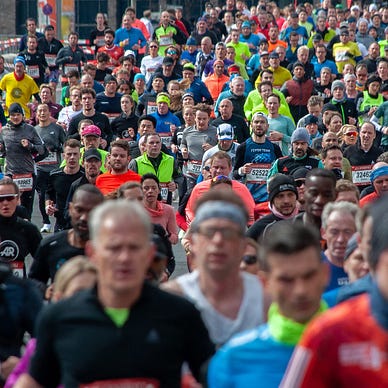Is There a Better System for Age Grading Marathon Results?
The conclusion of my series on using percentiles to age grade race results
How do you fairly compare race results between two different runners?
Let’s say three runners all complete a marathon in 3:00. Taken at face value, you could say that all three runners did equally well.
But what if those three runners were a 25-year-old man, a 40-year-old woman, and a 60-year-old man? That time is not equally hard for each of those runners — so who performed the best?
That is a question that age grading has tried to answer for the past few decades — and that I’ve been exploring in a recent series of articles.


The traditional age grading scheme is useful, and is certainly one way to draw comparisons. But it is not without its flaws.
